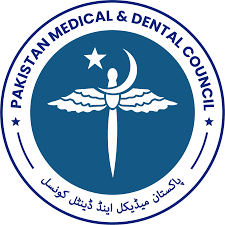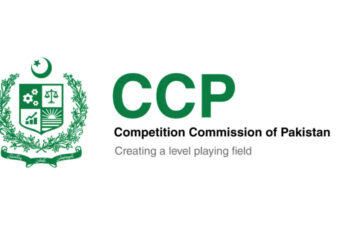ISLAMABAD : The Pakistan Medical & Dental Council (PM&DC) clarifies its legal position on the registration of foreign medical graduates (FMGs) and their concerns being circulated on social media.
On Sunday, PM&DC clarified that presently, there are 03 categories of Pakistani graduates who have obtained degrees from foreign institutions mainly from Afghanistan, Central Asian Republics such as Kyrgyzstan, Iran, etc. Most of these graduates started their foreign education during PMDC Ordinance 1962 and the Pakistan Medical Commission (PMC) Act 2020 were in place.
The Parliament of Pakistan promulgated PM&DC Act 2022 and the new Council was reconstituted in April 2023. The present Council has implemented several reforms to promote medical education. These initiatives not only focus on medical education in the country but also for Pakistani nationals who intend to pursue education abroad, ensuring patient safety and strengthening the national health system.
The PM&DC Act 2022 provides the Council to assess and recognize foreign medical institutions and only those graduates of foreign institutions duly recognized by PM&DC are eligible for the issuance of provisional registration. These graduates may be granted provisional registration; however, they are mandatorily required to pass the National Registration Examination (NRE) before obtaining full license to practice.
The PM&DC has started a rigorous process of assessment of foreign medical institutions where Pakistani students are enrolled. However, several institutions do not qualify the PM&DC regulatory framework and their graduates are demanding the issuance of a provisional registration certificate for clinical services. In the recent past, at least two medical universities from Punjab have raised serious concerns on quality of medical education of these graduates from some foreign countries.
The present Council has discussed this issue of prime public interest very carefully and thoroughly. Accordingly, it was decided that only those graduates of foreign institutions duly recognized by PM&DC are eligible for the issuance of provisional registration prior to NRE. All other graduates enrolled at the time of erstwhile PM&DC or PMC and their institutions not yet recognized under the new law, will be issued provisional registration once they qualify for the NRE examination.
Furthermore, only graduates of foreign institutions included in the ECFMG accredited lists are eligible to appear in the NRE. This standard practice is also adopted by different countries. It is also important to emphasize that the requirement of passing the examination for the issuance of a provincial or full license is not a new phenomenon. In fact, it was started by the Council in early 90s under the PM&DC Ordinance 1962.
PM&DC firmly clarifies that all its decisions regarding FMGs are under the law and to ensure safety, competence and consistency before a doctor can treat patients independently. Furthermore, claims that registration of 4000-7000 foreign graduates is pending with PM&DC are factually incorrect.
Actually, PM&DC had a pendency of over 700 such graduates. Several candidates have already requested that their fee be adjusted against NRE examination. PM&DC is cognizant of due concerns of the FMGs, has planned NRE examination in November 2025, detailed schedule to be announced soon. The PM&DC, as the sole regulator of medical education and practice in the country, cannot compromise on patient safety. Every graduate stepping into professional life carries the responsibility of human care, and the Council is duty-bound to ensure that only those who meet the required standards are allowed to practice.
Accordingly, the Council’s present actions are in complete conformity with the law and are aimed at ensuring transparency, safeguarding public interest, and upholding the standards of medical practice in Pakistan. It is also clarified that almost every country requires foreign-trained medical graduates to pass some kind of licensing or qualifying examination before they can begin practice to protect patients and to maintain healthcare standards, as the exam ensures that all doctors practicing locally meet the minimum knowledge and competency standards required in that country.
Authorities of the medical profession of every country need to be confident that every doctor entering practice has the clinical knowledge and judgment to provide safe patient care. For example, the US requires foreign doctors to pass the USMLE, the UK requires the PLAB (or GMC approved alternatives), Canada requires the MCCQE exams and Pakistan requires the NRE for foreign graduates. Licensing exams provide a fair, standardized way to evaluate all graduates, regardless of where they studied. Exams are taken to check whether graduates are familiar with local expectations and patients must feel assured that every doctor they see has been rigorously assessed. Licensing exams strengthen confidence in the healthcare system. Ends















